Next month, a total solar eclipse will briefly plunge the South Pacific, Chile and Argentina into darkness, but how will wildlife react to this astronomical event?

There is no more powerful nor more fleeting a sight in nature than a total eclipse of the sun. For humans standing in exactly the right place, this is the only time when the sun’s outer atmosphere, the ice-white corona, can be seen with the naked eye. It can be an amazing, emotional spectacle, but how do animals and insects experience it?
On 2 July 2019, a total solar eclipse will plunge a 145–193km track of the South Pacific, northern Chile and Argentina into blackness for just over two minutes. Witnesses to the rapidly darkening landscape during a total solar eclipse have always observed wildlife, though, mostly, it’s been anecdotal. As the sky turns twilightlike, stories abound of birds going to roost, dairy cows returning to the barn, croaking frogs, flying bats and crickets making a cacophony of noise. Such reactions suggest a change in behaviour but, until recently, there’s been little measurable science. That all changed on 21 August 2017 when a total solar eclipse swooped across the USA. It was a rare chance to study the effect of totality (when the sun is obscured) across a large landmass and, since the USA has much advanced and consistent weather and radar data, scientists had far more information than usual, to help them design their studies.
Back to black
An eclipse is not like a sunrise or sunset, which occur before and after prolonged twilight. A total solar eclipse – which takes place roughly once every 16 months – brings sudden darkness, along with reduced temperature and wind speed. The profound gloom lasts as little as a few seconds and as long as seven and a half minutes – depending on the observer’s exact location – but it’s often a once-in-a-lifetime opportunity for researchers to see how their chosen field of study is affected by the event.
Esta historia es de la edición June 2019 de BBC Wildlife.
Comience su prueba gratuita de Magzter GOLD de 7 días para acceder a miles de historias premium seleccionadas y a más de 8500 revistas y periódicos.
Ya eres suscriptor ? Conectar
Esta historia es de la edición June 2019 de BBC Wildlife.
Comience su prueba gratuita de Magzter GOLD de 7 días para acceder a miles de historias premium seleccionadas y a más de 8500 revistas y periódicos.
Ya eres suscriptor? Conectar
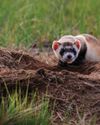
Does cloning create identical copies?
EMBRYOS ARE MADE OF STEM CELLS that divide to give rise to different types of cells, everything from skin to brain cells. Scientists once thought that reproductive cloning creating a genetically identical copy of an individual organism - would be impossible without using stem cells and that the path leading to mature 'differentiated' cells was irreversible. But clawed frogs proved them wrong...
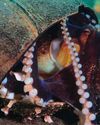
Tool-using animals
Our pick of 10 species that exhibit this special skill

Mission Blue
Sylvia Earle has dedicated her life to marine conservation; she tells BBC Wildlife why protecting the ocean is essential to all life on earth
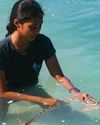
RESHARK
The world's first shark rewilding initiative has seen zebra sharks released in the waters of Indonesia's Raja Ampat archipelago
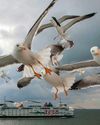
ON DECK
Ferries aren't just for transport, they're also perfect vessels for conservation
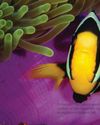
IT'S A COLOURFUL LIFE
Delve into the unique and complex biology of the clownfish, arguably the world's most famous fish
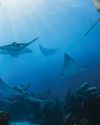
BAHAMAS BENEATH
A dive into the waters of this famous island nation with the creatures that call it home

"To save the reef, we need everybody involved"
Indigenous peoples may hold the key to protecting the Great Barrier Reef
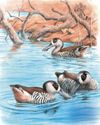
SPINNING AROUND
Going around in circles proves fruitful for this filter-feeder
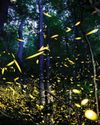
BLINDED BY THE LIGHT
On balmy evenings, amorous beetles put on a spellbinding show in North American forests